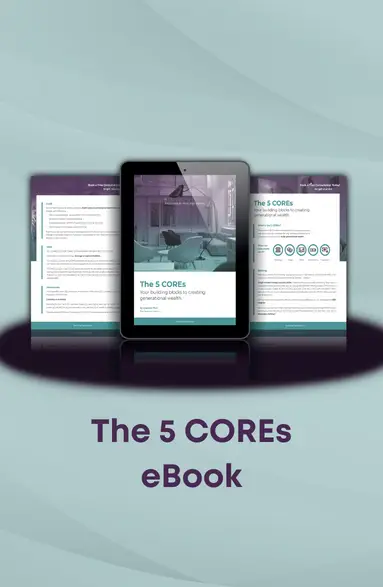Are you tired of living paycheck to paycheck and feeling like you’re never getting ahead? What if I told you it’s not just about how much you earn, but how you spend your money that makes all the difference in the world? It may seem like a simple concept, but spending money wisely is the key to creating long-term wealth and financial freedom.
In this article, we will explore the art of spending money wisely, from creating a budget to understanding your priorities and even investing in yourself. By the end of this article, you should have a better understanding of how to make your money work for you and the 99% Tribe, or at the very least begin your journey into achieving more clarity. Let’s start by diving into the magic of compound interest and its relationship with wealth creation. Did you know that if you save $100 a month at an 8% annual return, you’ll have over $18,000 in 10 years and a jaw-dropping $232,000 in 40 years? Now that’s the power of compound interest!
What is Spend Money Wisely?
Spending money wisely means making informed and intentional decisions on how to allocate your finances to achieve both short-term and long-term goals. It’s about finding the balance between enjoying life today while still planning and saving for the future. Spending money wisely helps you build a strong financial foundation, reduce stress, and create a more fulfilling life.
Know Your Priorities.
Before you can spend your money wisely, you need to know what your priorities are. What do you value most in life? Is it creating memorable experiences, providing for your family, or investing in your future?
If you’re not sure what your priorities are, sit down and make a list of all the things that are important to you. Then call a family meeting and do the same to determine what you value as a family and what your priorities are. Bring your kids into the mix! Don’t be afraid to start money conversations early with your little ones, this helps them learn and understand the process. We’re not expecting them to calculate the compound interest for your investments, but we’re teaching them the wealth mindset. Once you have that list, order them from most to least important. This will help give you some clarity about where to focus your spending. A bonus is that now you have your family on the same page and can help keep each other accountable.
Remember, everyone’s priorities are different, so there is no “right” way to spend your money. The key is knowing yourself and making choices accordingly. If you prioritize experiences over possessions, then don’t waste your money on things that won’t bring you joy. Life is too short to put material goods above everything else!
Priorities do also change as we reach new life stages. If this happens, don’t be afraid! It’s completely normal and happens more often than you think. The key here is to simply head back to the drawing board and reevaluate your plan. Take a look at your current priorities and adjust them as needed. Perhaps one of the priorities within your family is meal time together. Each month you’d go out for a family meal to enjoy each other’s company and to try new foods. But now, your children have grown up and they want to spend more time with friends. This might be a good time to shift your dining-out budget over to vacation. Instead of monthly family time, you pool it all together by going on a quarterly trip. I still review our financial priorities at least once a month to ensure that I’m adapting to our goals, whether that be a specific savings account or new investment opportunities.
Understand Your Spending Triggers.
We all have spending triggers – those things that cause us to reach for our wallets without thinking. Maybe it’s a sale on your favorite shoes or an advertisement for the latest must-have gadget. Whatever it is, if you’re not aware of your spending triggers, they can end up costing you a lot of money.
So how do you identify your spending triggers? Start by keeping track of every time you spend money impulsively. Write down what triggered the purchase and how you felt afterward. After a week or two, look back at your list and see if there are any patterns. Are there certain types of triggers that seem to make you spend more than others? Once you know what your triggers are, you can start to work on avoiding them.
One way to avoid impulse buying is to give yourself a cooling-off period before making any major purchases. Tell yourself that you’ll sleep on it before buying anything over $100 (or whatever amount feels significant to you). This will help stop impulsive buys based on momentary emotions like excitement or happiness.
Be extra careful if your purchases are small amounts – these can add up really quickly! Each time I spend on food it’s below $50 for myself, so I think, “Oh, that’s okay” (especially if it’s only $25 or under). But by the time I go to reconcile for the money, it turns into a whopping disaster of many months over $1,000, just for myself. It’s not so much that I have a food addiction; it’s more of a “I need something fresh” to eat, and I don’t want leftovers, nor do I want to cook new food.
So be careful, it’s not always the big amounts that we think. Sometimes it’s the small ones that get you, a death by a thousand cuts.
Make A Budget And Stick To It.
When it comes to spending your money wisely, one of the best things you can do is to make a budget and stick to it. This may seem like common sense, but so many people fail to do this simple thing. I, for one, absolutely despise the term “budget”. I find it incredibly limiting and already starting off in a scarcity mindset. So why use it? Well, my tribe, SEO purposes, SEO. I actually prefer to use the term “asset allocation”, which honestly is the exact same thing but it alters the meaning for me.
Creating a budget feels restrictive. I have to stop myself from going over budget, which is a very limiting way of thinking. Whereas asset allocation, I GET to put a certain amount of money into the categories I choose, like household, dining out, maintenance, etc. In my mind, I’m moving money around for my own needs as opposed to having to restrict what I can spend on.
It does not matter which term you choose, for the actions are legitimately the same. So, go with the one that makes you feel most empowered and motivated!
Creating a budget doesn’t have to be complicated. Start by writing down all of your income sources and then list out all of your expenses. Be sure to include both fixed costs (like rent or mortgage payments) and variable costs (such as food, entertainment, etc.). Once you have everything listed out, start trimming away unnecessary expenses until you’re left with a realistic monthly budget. Note the word “realistic” here; it is very important to do this. Ninety percent of us are arrogant about money; we tend to not like to think about it, or we think there is no way out. If you take all the possible actions you can take and NOTHING changes, does that mean it’s impossible, or does that simply mean you need to expand your circle to find someone who has done what you’re trying to achieve?
The key is not just making the budget, but your dedication to your own financial independence. The question I always come back to is, “How badly do I want it?” It’s easy to say you want financial freedom for your family, but what are you WILLING to do to get there? Nothing comes for free in this world, but everything can come from simply putting in the work.
Invest In Yourself.
There are many things in life that money can’t buy, but one thing it can purchase is a better version of yourself. You may not be able to change your past or control the hand you were dealt, but you can always work on becoming a more educated, well-rounded, and experienced individual. Growing yourself will become one of the most important disciplines in your wealth-creation journey. This is because the most educated individuals, in the event they lose everything, all their money and assets, still have these two traits for their comeback. First, their skillset; they can easily create a new venture and make that money back. Second, they have their network. Anything is possible if you know the right people.
Now, most of us aren’t at this level yet, which is why below are three ways to invest in yourself:
1. Get an Education
Money spent on tuition and books is an investment that will pay off for years to come. I’m not talking about a degree here. If you’re becoming a doctor, of course, please go to school and practice your medicine. But if you’re looking to learn a new skill like copywriting, digital ads, coding, most of these you can learn for free or afford at a much lower rate than university or college. Not sure where to start? Search your interests on YouTube or TikTok and begin your journey there. I find these platforms extremely helpful in directing me to ask the right questions to deepen my understanding of any subject.
2. Take Care of Your Health
Eating right, exercising regularly, and getting enough sleep are essential for maintaining both physical and mental health throughout your lifetime. Investing in preventive care now will help you avoid costly medical bills down the road – plus feeling good today! From quitting smoking to joining a gym, there are lots of small steps you can take to improve your overall wellness. The MOST successful entrepreneurs and people, in general, almost always have some sort of health/wellness practice in their daily routines. The reason we focus so much on health is that we know the work that is required, but without a healthy body to do it, how are we ever going to achieve our goals? I mean, we’re not exactly at the stage yet where we can upload our brains. Soon perhaps but not soon enough!
3. Expand Your Circle
Nothing, absolutely NOTHING, will replace the power of having a network. Most people only associate with those who are like them. This is natural and comfortable, but it severely limits your opportunities for growth. To expand your circle, begin by seeking out diverse perspectives. Attend a city council meeting or go to a networking event outside of your industry. You’ll be surprised at how much you can learn from others if you’re open to hearing about their experiences and points of view. Is it uncomfortable? A thousand percent! But so is building generational wealth.
It’s normal to be afraid. I’m socially awkward AF, and not to mention I’m Asian, so we naturally judge everything first and then try to understand the why. If you’re terrified, start small. Go attend some mom groups, ladies’ nights, or your community golf/tennis clubs. Start somewhere with an activity that you already enjoy and then learn about the people around you.
Expanding your circle is not gold digging; it’s building genuine connections by learning about what others are up to. By asking questions and listening carefully, you can gain valuable insights into different ways of thinking that will help broaden your own perspective. And finally, once you’ve expanded your circle, don’t forget to pay it forward by sharing what you’ve learned with others.
Having a large network will give you access to more resources and opportunities. Your network is one of those lovely things that can be leveraged.
Live Below Your Means.
Most people think that in order to save money, they need to make more of it. However, this isn’t always the case. While it certainly NEVER hurts to generate more income, one of the best ways to save money is actually to live below your means. This means spending less than you earn and living a simpler lifestyle.
There are a number of ways you can live below your means. One way is to cut back on unnecessary expenses like eating out or buying new clothes all the time. I’m not saying never, but instead of each week, try once a month or every other month. Another way is to find cheaper alternatives for things you need, such as generic brands instead of name brands. Facebook Marketplace is a great resource for a young family. You can also try DIY projects instead of hiring someone else to do them for you.
Another way is to downsize where you live. Most people will absolutely hate this option and will never even consider it. But let me ask you again, how badly do you want financial freedom? Downsizing does not mean forever; perhaps your family has landed in a tough spot, and a year of reduced rent will help clear off all your debts – would you be willing to make the move then? Or would you prefer to pay back your debt slowly over the next 5-10 years and stay where you are?
It’s not right or wrong; it’s simply a matter of what you want more in your life. For me, the game that I’m playing is generational wealth, and each time I ask myself how badly I want it, I usually start looking at what other areas I can generate more income. How can I increase my own leverage? When all else fails and I’m unable to save, my next move is always to generate MORE income. Penny pinching takes the same amount of time as it does for me to actually make more money.
Finally, be mindful of your overall financial picture and don’t overspend just because you have some extra money at the moment – put it into savings! Actually, put it into savings if you don’t already have an emergency fund with 3-6 months of a buffer. If you do, put those extra funds into an investment account like your ROTH IRA or HSA (health spending account).
Living below your means takes discipline and practice, but it’s worth it in the end when you have a nice nest egg saved up for emergencies, vacations, short/long-term goals, and retirement!
Final Thoughts
Paying attention to how you spend your money is important not just for your financial stability but also for your mental and emotional well-being. Money is a tool that can be used to improve your life, but only if you use it wisely. And to do so, you must practice and practice under your master: the discipline.
If you want to be smart about your money, you need to be aware of your spending patterns and make adjustments accordingly. Making small changes in your spending habits can have a big impact on your finances over time. If you are not sure where to start, there are many resources available to help you learn how to spend your money wisely. If you want a more in-depth financial review of your current situation, jump on a roadmap call today.
By following these tips, we’ve covered in this article, you can make sure that your money is working for you and not against you. You’ll be on your way to a happier, healthier, and more prosperous life. So, what are you waiting for? Start making changes today and join the 99% Tribe on our journey towards financial literacy and empowerment!






